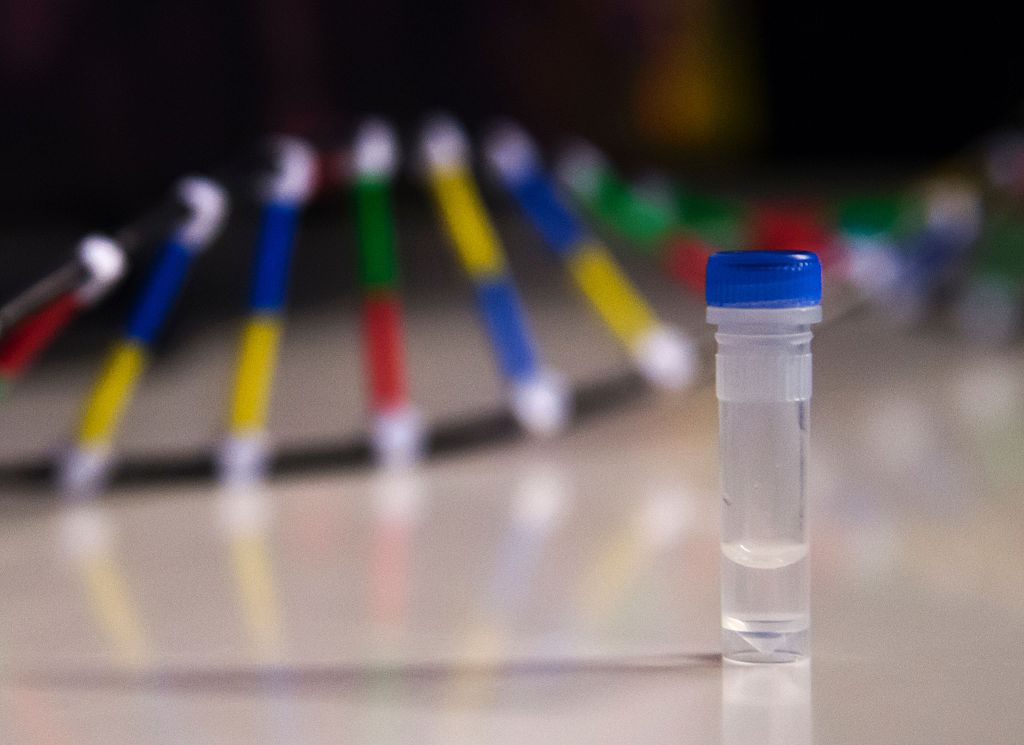Scientists propose hugely ambitious project to build a human genome from scratch


A free daily email with the biggest news stories of the day – and the best features from TheWeek.com
You are now subscribed
Your newsletter sign-up was successful
A team of major scientists has proposed synthesizing the human genome from scratch — an ambitious and ethically questionable project that is expected to cost $10 billion and take a decade to complete. Put forward by a team of 25 scientists in Science, the researchers say they want to expand on the work done by the Human Genome Project, which decoded the 3 billion paired letters of the human genome and was completed in 2003.
"We've been very clear that this is not about making a synthetic human," one of the project's leaders, Andrew Hessel, told BuzzFeed News. However, artificial human cells could help test new drugs and vaccines or hypothetical genome edits that could lead to disease immunity or cancer resistance; the research could also help with the growth of readily transplantable organs.
Many in the field are still unconvinced by the plan, though. "Is developing the capacities to synthesize human genomes a good idea?…[The scientists] fail to pose these essential questions. In fact, in their proposal, [they] fail to pose any questions. Nor do they detail specific limits about what should not be done," Stanford bioengineering professor Andrew Endy and Northwestern bioethics professor Laurie Zoloth said in an opinion piece that called for the rejection of the proposal.
The Week
Escape your echo chamber. Get the facts behind the news, plus analysis from multiple perspectives.

Sign up for The Week's Free Newsletters
From our morning news briefing to a weekly Good News Newsletter, get the best of The Week delivered directly to your inbox.
From our morning news briefing to a weekly Good News Newsletter, get the best of The Week delivered directly to your inbox.
"Why build a new chromosome rather than modify a working one?" Stanford law and ethics professor Hank Greely also asked. "It's not clear to me why large scale synthesis should be substantially better."
A free daily email with the biggest news stories of the day – and the best features from TheWeek.com
Jeva Lange was the executive editor at TheWeek.com. She formerly served as The Week's deputy editor and culture critic. She is also a contributor to Screen Slate, and her writing has appeared in The New York Daily News, The Awl, Vice, and Gothamist, among other publications. Jeva lives in New York City. Follow her on Twitter.
-
 What is the endgame in the DHS shutdown?
What is the endgame in the DHS shutdown?Today’s Big Question Democrats want to rein in ICE’s immigration crackdown
-
 ‘Poor time management isn’t just an inconvenience’
‘Poor time management isn’t just an inconvenience’Instant Opinion Opinion, comment and editorials of the day
-
 Bad Bunny’s Super Bowl: A win for unity
Bad Bunny’s Super Bowl: A win for unityFeature The global superstar's halftime show was a celebration for everyone to enjoy
-
 Rubio boosts Orbán ahead of Hungary election
Rubio boosts Orbán ahead of Hungary electionSpeed Read Far-right nationalist Prime Minister Viktor Orbán is facing a tough re-election fight after many years in power
-
 Key Bangladesh election returns old guard to power
Key Bangladesh election returns old guard to powerSpeed Read The Bangladesh Nationalist Party claimed a decisive victory
-
 Epstein files topple law CEO, roil UK government
Epstein files topple law CEO, roil UK governmentSpeed Read Peter Mandelson, Britain’s former ambassador to the US, is caught up in the scandal
-
 Iran and US prepare to meet after skirmishes
Iran and US prepare to meet after skirmishesSpeed Read The incident comes amid heightened tensions in the Middle East
-
 EU and India clinch trade pact amid US tariff war
EU and India clinch trade pact amid US tariff warSpeed Read The agreement will slash tariffs on most goods over the next decade
-
 Israel retrieves final hostage’s body from Gaza
Israel retrieves final hostage’s body from GazaSpeed Read The 24-year-old police officer was killed during the initial Hamas attack
-
 China’s Xi targets top general in growing purge
China’s Xi targets top general in growing purgeSpeed Read Zhang Youxia is being investigated over ‘grave violations’ of the law
-
 Panama and Canada are negotiating over a crucial copper mine
Panama and Canada are negotiating over a crucial copper mineIn the Spotlight Panama is set to make a final decision on the mine this summer
